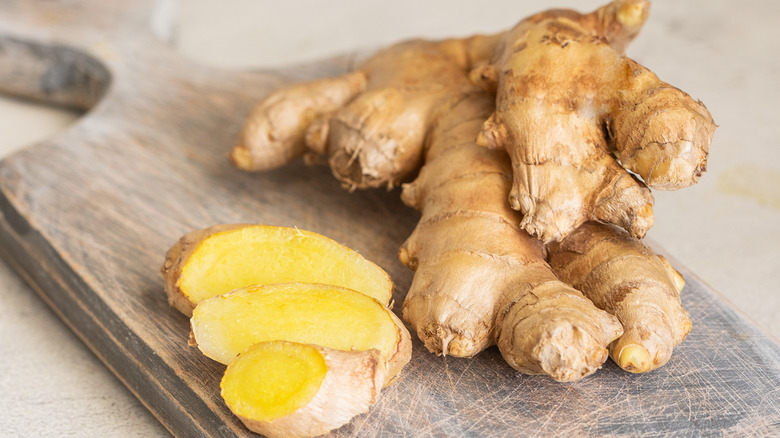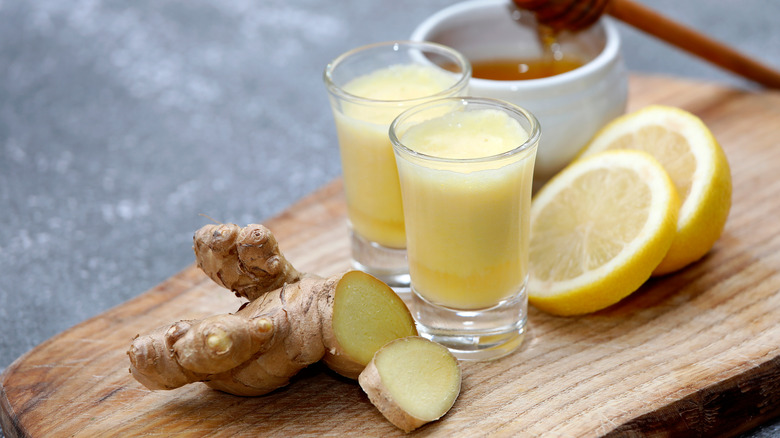Can Eating The Skin On Ginger Make You Sick?
A kitchen is not complete without ginger. Whether steeped in tea, pickled on sushi, tossed in a stir fry, added to soup, or used in baked goods, this ancient spice is a powerhouse of flavor and health benefits.
Ginger originated in South Asia alongside its plant-family members cardamom and turmeric, but let's banish a popular misconception: Ginger is not a root. It may look tubular, but that little brown bundle of spicy goodness is actually a rhizome, like a potato, notes Europe PMC. So, you should really be referring to ginger as a stem, not a root. (Trust us. All your plant-science and biochemist friends will appreciate the distinction.)
Ginger has been used in India for more than 5,000 years in both medicinal and culinary applications. According to the National Library of Medicine, while ginger has been successfully used for thousands of years in native and at-home-remedies, the use of the stem is now being accepted in Western medicine practices. According to Emily Kyle, author of "The Hashimoto's AIP Cookbook," some of ginger's health benefits include anti-inflammatory properties, indigestion assistance, nausea treatment, and even cancer prevention (via Food Network). So whether you keep your ginger in your freezer for long-term use, tucked into the veggie drawer, or ground up in the cupboard, you are carrying on a millennia-old practice that is not only delicious but excellent for your overall health.
Don't skin your ginger
Those who didn't grow up with ginger in their homes may be a bit hesitant to throw the stem, skin-and-all, into their recipes. We get it. Much of the produce we use in the kitchen requires peeling, so it may feel a bit odd not to do so. Some people are even worried that ginger skin may not be good for them, or could even make them sick. Don't worry. Not only is the skin edible, but it is perhaps the healthiest part of the spice. "[Ginger peel] contains two times the beneficial polyphenols as the flesh and, importantly, unique and distinct compounds," chef and Harvard PhD Kanchan Koya shared on Instagram.
Obviously, before using your ginger, you should wash it to prevent outside germs and bacteria from invading your body, but the skin on ginger has no harmful properties. In fact, if you leave the skin on, it retains higher antioxidant levels, notes Semantic Scholar. So, no, you don't have to spend the extra time and energy peeling or scraping away a ginger's skin. Feel free to enjoy it as is — it will be just as flavorful and even better for you.

